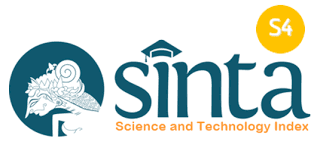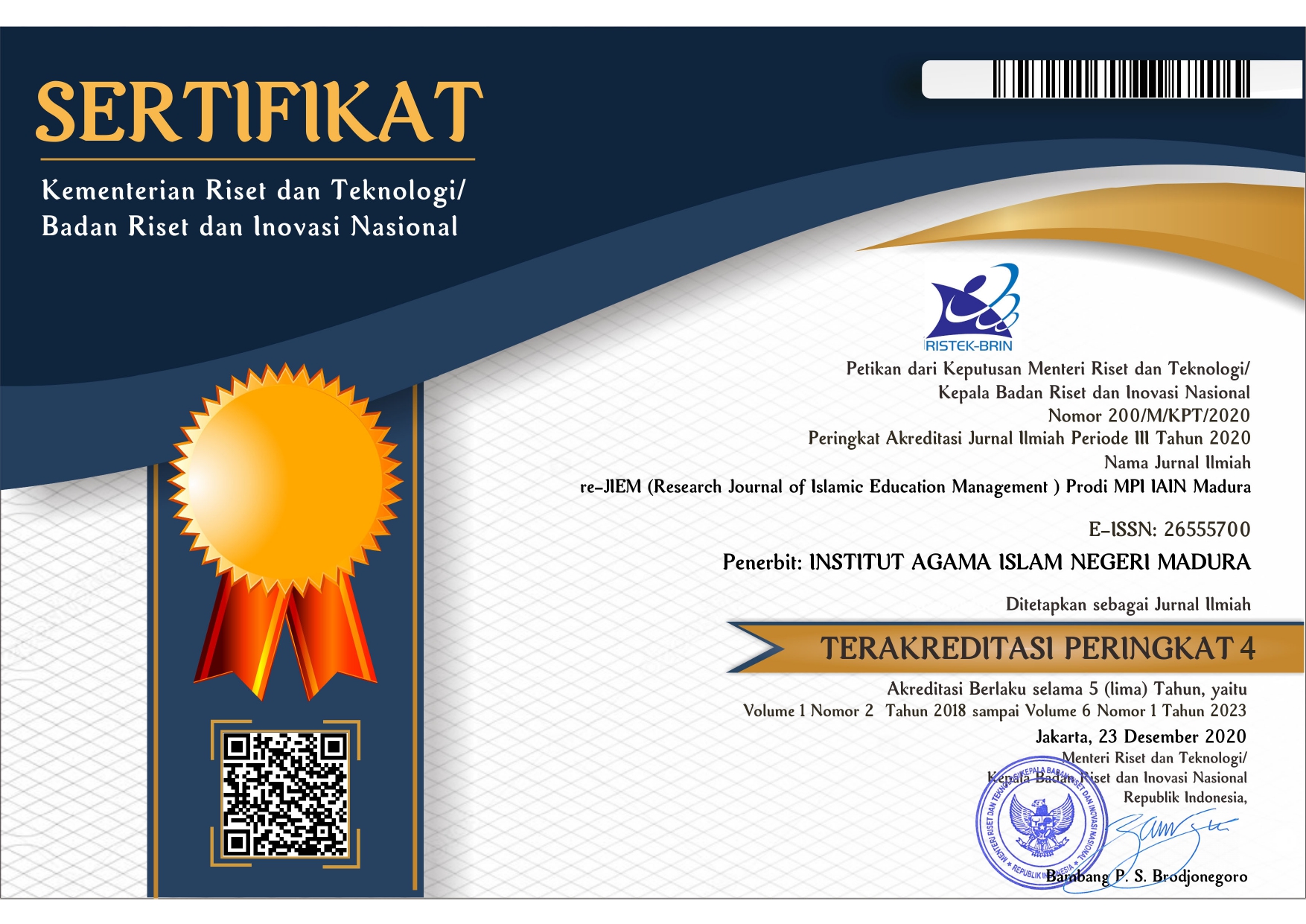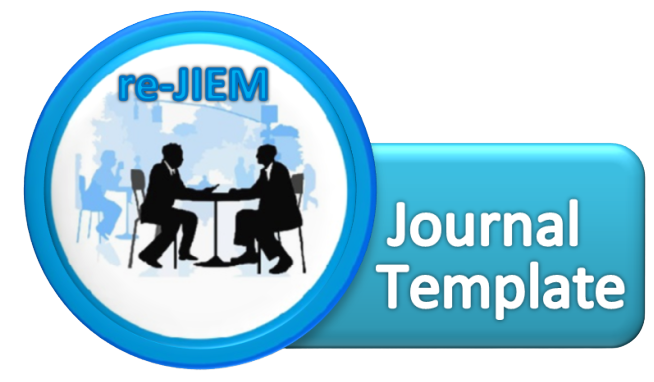IMPLEMENTASI SISTEM PENDIDIKAN NASIONAL DI PONDOK PESANTREN DARUL QURAN BANDUNG
 Abstract views: 271
,
Abstract views: 271
,
 PDF downloads: 272
PDF downloads: 272
Abstract
Pesantren is an Islamic religious education institution that has Kyai, students, boarding schools and mosques. Pesantren education institutions have made a major contribution in their role in advancing the world of education in Indonesia. This article aims to examine the role of the Darul Quran Islamic boarding school in implementing the national education system. This research uses descriptive qualitative research methods, with data collection techniques through interviews, documentation study and observation. The results showed that the Darul Quran Islamic boarding school in Bandung was able to demonstrate its role in the national education system, through the Daqu method, and the Daili Activity which led the students to have attitudes, knowledge and skills to meet 21st century competencies.
Downloads
References
Amstrong, Thomas. Kecerdasan Multiple Edisi Ketiga. Jakarta: Indeks, 2013.
Boeree, George. Personality Theories. Yogyakarta: Prismasophi, 2007.
Desmita. Psikologi Perkembangan. Bandung: Remaja Rosdakarya, 2006.
Dhofier, Zamakhsyari. Tradisi Pesantren: Studi Pandangan Hidup Kyai Dan Visinya Mengenai Masa Depan Indonesia. Jakarta: LP3ES, 2011.
Goleman, Daniel. Emotional Intelligence. Jakarta: Gramedia, 2015.
———. Social Intelligence. Jakarta: Gramedia, 2015.
Hasanah, Su’udiyah. “Sorogan; Metode Warisan Pesantren Yang Berumur Panjang.” Ringtimes Banyuwangi, 2020. https://ringtimesbanyuwangi.pikiran-rakyat.com/pendidikan/pr-17616097/sorogan-metode-warisan-pesantren-yang-berumur-panjang.
Kasali, Rhenald. Discruption. Jakarta: Kompas Gramedia, 2018.
Mansyur. “Al-Qolbu Dalam Perspektif Al-Qur’an.” Tafsere 5, no. 1 (2017): 45–66. http://journal.uin-alauddin.ac.id/index.php/tafsere/article/view/7318/6002.
Mubah, Hilmi Qosim. Manajemen Pesantren Dan Pendidikan Luar Sekolah. Pamekasan: iainmadura press, 2019.
Nata, Abuddin. Psikologi Pendidikan Islam. Depok: Rajawali Pers, 2018.
Rofiatun, Rofiatun, and Mohammad Thoha. “Manajemen Pembinaan Kedisiplinan Santri Dalam Mengikuti Kegiatan Keagamaan Di Pondok Pesantren Nurus Shibyan Ambat Tlanakan Pamekasan.” Re-JIEM (Research Journal of Islamic Education Management) 2, no. 2 (2019): 278. https://doi.org/10.19105/re-jiem.v2i2.2937.
SMA, Dirjen Pembinaan. Panduan Implementasi Kecakapan Abad 21 Kurikulum 2013 Di SMA. Jakarta: Dirjen Pembinaan SMA, 2017.
Solichin, Muchlis, Moh. Hafidz, and Hilmi Qosim Mubah. “Kualitas Program Persiapan Guru Tugas Di Pondok Pesantren Mambaul Ulum Bata-Bata Panaan Palengaan Pamekasan.” Re-JIEM (Research Journal of Islamic Education Management) 2, no. 2 (2019): 305. https://doi.org/10.19105/re-jiem.v2i2.2870.
Tamlihah, Tamlihah, Abd. Mukhid, and Hilmi Qosim Mubah. “Implementasi Manajemen Kurikulum Pesantren Dalam Membentuk Karakter Mandiri Santri Di Pondok Pesantren Nurus Sibyan Ambat Tlanakan Pamekasan.” Re-JIEM (Research Journal of Islamic Education Management) 3, no. 1 (2020): 96. https://doi.org/10.19105/re-jiem.v3i1.2957.
Yusuf, Syamsu. Psikologi Perkembangan Anak Dan Remaja. Bandung: Remaja Rosdakarya, 2006.
Copyright (c) 2020 re-JIEM (Research Journal of Islamic Education Management)

This work is licensed under a Creative Commons Attribution-ShareAlike 4.0 International License.
Authors who publish with this journal agree to the following terms:
Authors retain copyright and grant the journal right of first publication with the work simultaneously licensed under a Creative Commons Attribution-ShareAlike 4.0 International License that allows others to copy and redistribute the material in any medium or format with an acknowledgment of the work's authorship and initial publication in this journal and also allows to remix, transform, and build upon the material for any purpose, even commercially with contributions under the same license as the original.
Authors are able to enter into separate, additional contractual arrangements for the non-exclusive distribution of the journal's published version of the work (e.g., post it to an institutional repository or publish it in a book), with an acknowledgment of its initial publication in this journal.
Authors are permitted and encouraged to post their work online (e.g., in institutional repositories or on their website) prior to and during the submission process, as it can lead to productive exchanges, as well as earlier and greater citation of published work.



























